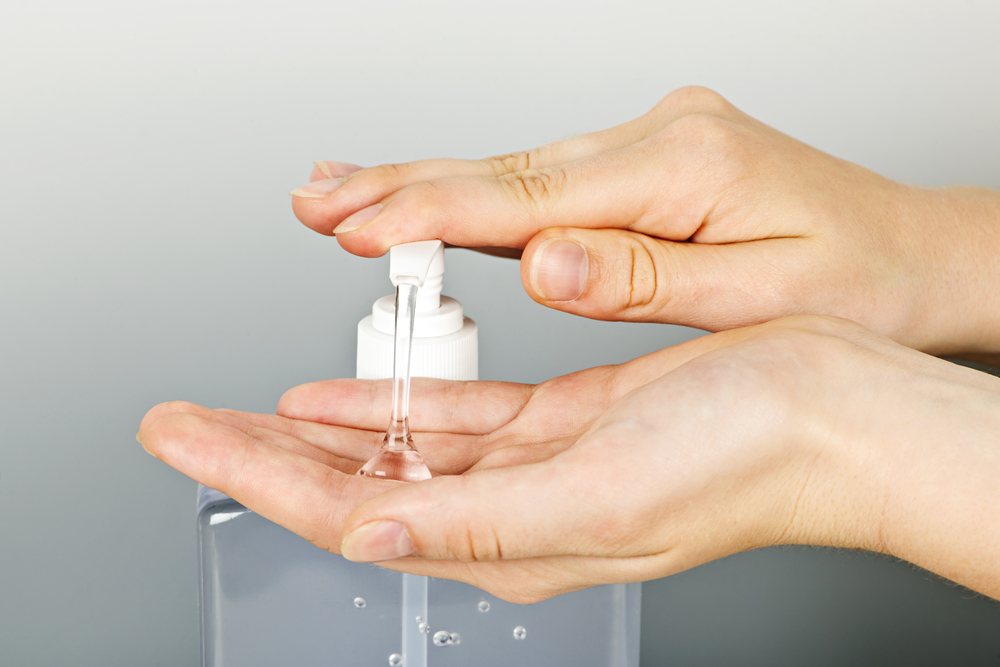It seems more prevalent among teenagers and young kids. Still, those with alcohol use disorder and people in the prison system are prone to the habit of drinking hand sanitizer to achieve intoxication. The problem is there are more significant side effects and dangers, particularly for the minor children with consumption of these products.
It’s common for little kids to put anything in their mouth to test it out, which is one reason parents buy non-toxic glue for school. Paying attention to every ingredient on the packaging for products attached to backpacks or on the bathroom sink is critical.
And many adults are sending kids with their own mini containers of hand sanitizer while at school or camp without not considering those facts.
With the many fruity pictures and flavors, kids are drawn to what they believe to be a tasty substance, and in some cases, the product doesn’t disappoint the child when they try it. That leads to overindulgence and a bad health outcome.
For teenagers drinking the substance has quickly become a trend. The media reporting on how it’s being incorporated and ways to use other hygiene products with the sanitizer to create different types of “cocktails” inadvertently contribute to the behavior. These products are a fast, affordable, and easy way for kids to get what they perceive as booze and hide their use.
Table of Contents
ToggleIs Alcohol An Ingredient In Hand Sanitizer?

Adults who consume hand sanitizer likely are hiding an addiction to alcohol or abusing the substance. Among those warning against drinking these sorts of substances includes federal health agencies.
The hazards are significant, but individuals searching for anything that might contain an alcohol base are unconcerned with the danger in their effort to get a hit of “liquor.”
Other familiar products desperate people enlist to try to achieve a fix include the following readily accessible items:
- Antifreeze
- Disinfectants
- Mouthwash
The CDC or Center for Disease Control and Prevention released reports to highlight the severe health consequences of consuming hand sanitizers with an alcohol base that, included the potential of alcohol poisoning and fatality. This was done in 2020 when the products were brought into homes in droves due to the pandemic.
The alcohol can come in different forms, with some ranging between “60 to 95 percent proof or equal to roughly five alcoholic drink shots.” The various alcohols found in hand sanitizers are not always consumption-friendly. These include:
- Methyl or methanol
- Isopropyl or isopropanol
- Ethyl ethanol
The products with methyl alcohol are banned, not available in stores, and considered illegal due to their high toxicity, according to the FDA or US Food and Drug Administration. Health officials indicate ingesting any hand sanitizer can result in severe adverse effects, including death. Why do people continue to drink the substance with these warnings being issued?
Primarily, the alcohol content is higher than even alcoholic beverages, including some spirits and most beers and wine. Plus, the cost is far less than liquor, and the hand sanitizer is readily accessible to anyone. People with an addiction or who abuse alcohol are desperate for something that will give them a shot, especially if they cannot get genuine liquor.
Teens participating in the practice usually do so in a peer-related experimental or pressured activity. Small kids don’t know better and will do so out of curiosity, with some accidentally consuming the substance. The little ones are exceptionally vulnerable since it won’t take a significant amount to intoxicate or bring toxic results.
Adverse Reactions To Drinking Hand Sanitizer
Federal health agencies warn that drinking hand sanitizer is exceptionally dangerous, with the potential for fatality. Some adverse reactions noted when drinking this in any volume can include the following:
- Fatality
- Vision loss (permanent blindness) / sight impairment
- Seizures
- Metabolic acidosis (anion-gap)
- Alcohol poisoning
Methanol poisoning was a prevalent issue in the country in 2020 after individuals drank the substance containing methyl alcohol, with some fatalities occurring due to this specific alcohol degree of toxicity. Because the alcohol content in hand sanitizer is strong, the substance has the potential to create an addiction to alcohol in the same way consuming liquor does.
The store-bought containers with some hand sanitizers can range as high as “120 proof which is greater than a bottle of vodka.” The higher the content of alcohol, the more likely a person will be to abuse the substance and develop a habit leading them to drink more of it, increasing the risk for health consequences. That’s particularly frightening with teenagers.
What symptoms can you associate with drinking hand sanitizer of any quantity as a young person or of a significant amount as an adult?
- The potential for going unconscious
- A loss of coordination
- Abdominal pain
- Nausea and vomiting
- Blurred vision
- Headache
Consuming too great of an amount can lead to alcohol poisoning. If you have severe symptoms and believe you are experiencing poisoning, contact emergency services or the local poison control. You can also contact the emergency health services office.
The most common reason individuals consume hygiene or household products like hand sanitizer is to satisfy an addiction or a curiosity for alcohol. Reasons for liquor abuse can range from stress, peer pressure, social anxieties, or a habit that has developed. It’s not merely an adult issue.
Conclusion
More teens are developing a problem with alcohol and associated mental unwellness. Having products readily accessible that provide the same intoxication, if not more so than a bottle of liquor, is not helping the youth in our society. Perhaps the ingredients need to be reconsidered with a reasonable alternative instituted.
In the meantime, everyone needs to pay attention to those close to them, whether a teen, close friend, or loved one, and their habits. If you notice anything unusual, ask the questions and attempt to guide them toward help.
For small children, don’t leave substances like hand sanitizer where they can reach it, and don’t attach it to backpacks or send it with them to camp or school.
Small children will put anything in their mouths. They’re curious, and really, teens are just big kids; that curiosity doesn’t leave until you develop some maturity.

I am a passionate beer connoisseur with a deep appreciation for the art and science of brewing. With years of experience tasting and evaluating various beers, I love to share my opinions and insights with others and I am always eager to engage in lively discussions about my favorite beverage.
















